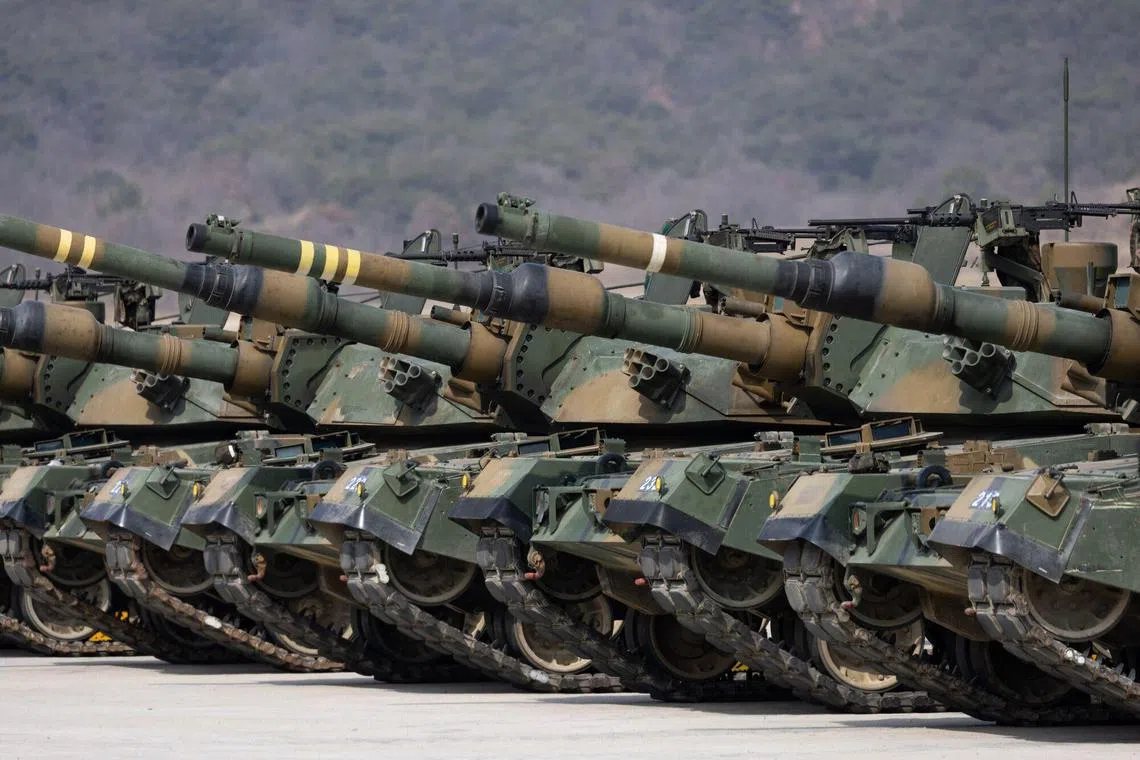For subscribers
Analysis
Rising risk of arms races in Asia spiralling into major conflict
Sign up now: Get insights on Asia's fast-moving developments

Arms racing, by definition, involves intense bilateral military build-ups that are both rapid and reciprocal.
PHOTO: BLOOMBERG
Arms races can sometimes be stabilising. The United States and the Soviet Union built massive nuclear arsenals during the Cold War. Yet, the risk of mutual annihilation these created ultimately stopped Moscow and Washington from crossing the Rubicon – notwithstanding some very close calls along the way, such as the Cuban missile crisis of 1962.
But arms races more often precede major conflict. The classic example here is the Anglo-German contest for naval supremacy at the start of the 20th century, which helped spark World War I.


